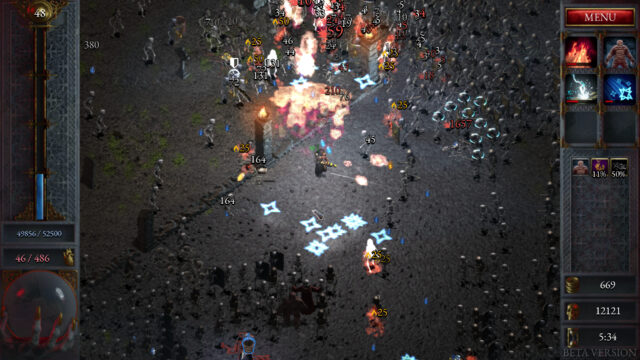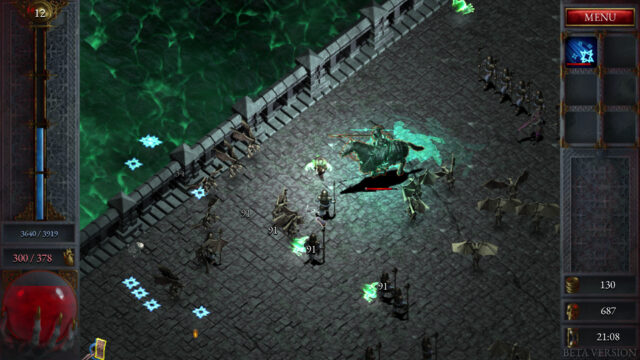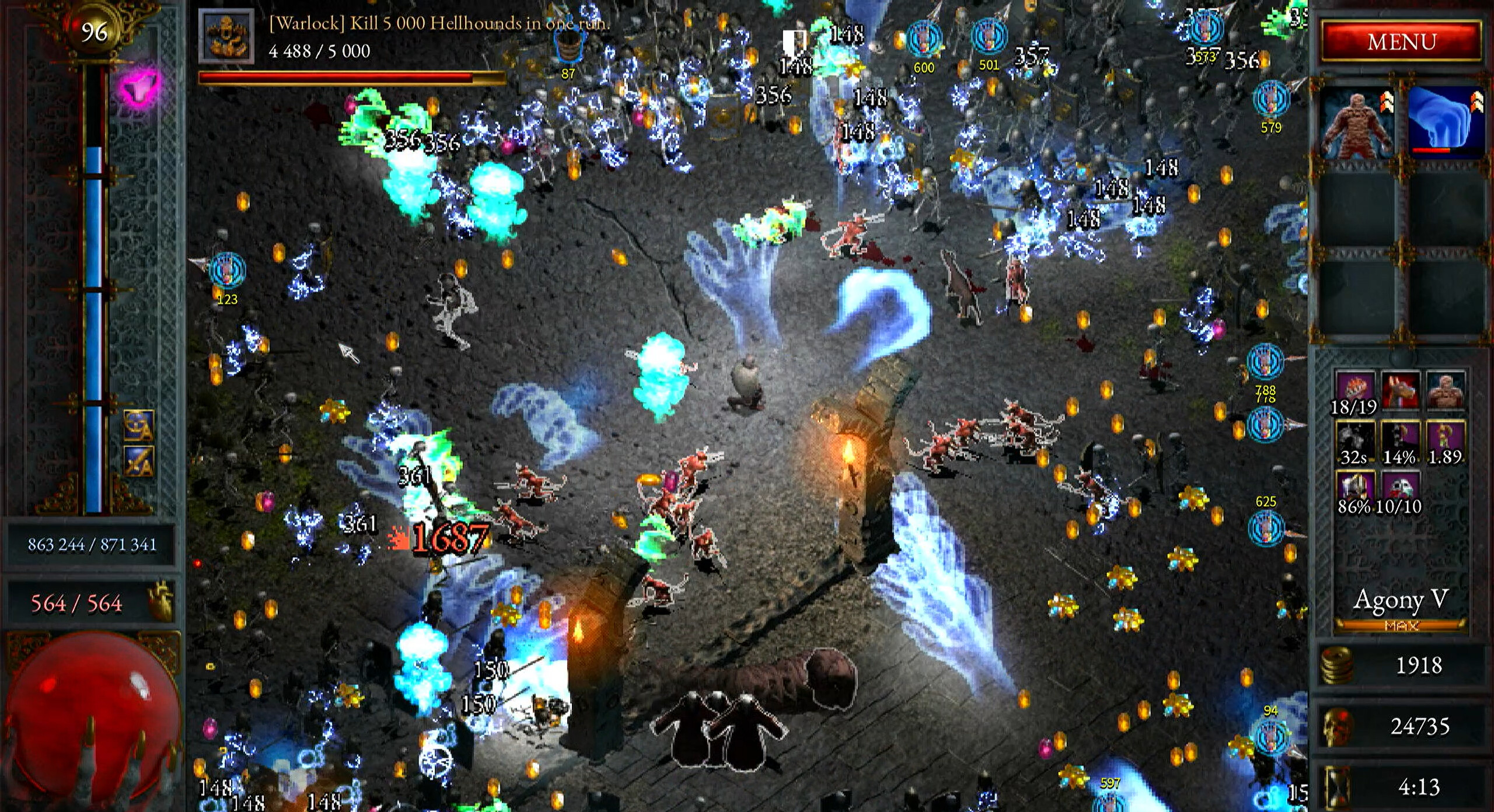Your first Halls of Torment run starts with a basic warrior, but new classes quickly unlock, each with their own distinct weapons and gameplay rhythms. My favorite ended up being the exterminator class, which uses a flamethrower to simply turn everything around him into a wall of flame. If that’s not your speed, you can choose from defensive shieldbearers with extremely slow attacks, melee axe-wielders that swing quickly with wild abandon, ranged archers that can deal damage from afar, magic-users that make heavy use of area-of-effect spells, a class with a semi-autonomous dog that goes after nearby enemies, and more.
Diablo, but also not Diablo
Just from glancing at Halls of Torment screenshots, it’s easy to glean the heavy visual influence the game owes to the grainy, isometric sprites of old-school Diablo. That throwback, nostalgic appeal extends to little touches like the menu system and low-fi voiceovers for NPCs as well, which comes across as a deliberate if cheesy design choice.
The game’s old-school sprites also make it easier for your graphics card to handle literally hundreds of moving objects and flashy attack effects on screen at once, too. Despite this, my relatively high-end system started struggling to maintain a consistent frame rate by the end of the more difficult dungeons.

Chasing Carrots
One of the less hectic moments in the game, to be quite honest.
Chasing Carrots

Chasing Carrots
One of the more interesting maps takes place on a long bridge.
Chasing Carrots
One of the less hectic moments in the game, to be quite honest.
Chasing Carrots
One of the more interesting maps takes place on a long bridge.
Chasing Carrots
The visual frenzy of all these old-school sprites can get a bit overwhelming, especially when some of your own summon attacks end up difficult to distinguish at a glance from enemy threats. Overall, though, the use of distinct colors makes it easy enough to quickly evaluate a screen full of information and extrapolate what it will look like over the coming seconds. I especially appreciated the big, purple lines and circles that telegraph where projectile attacks are going to appear just moments before they do.

